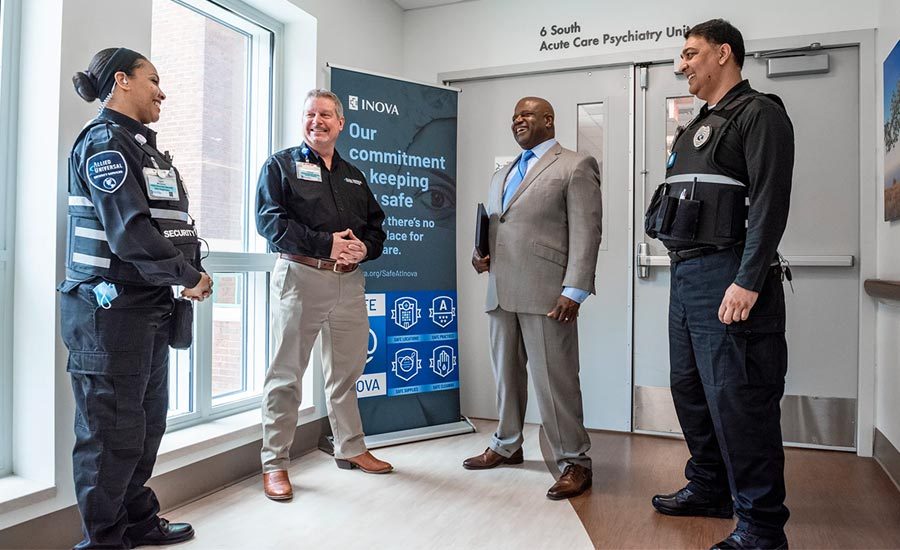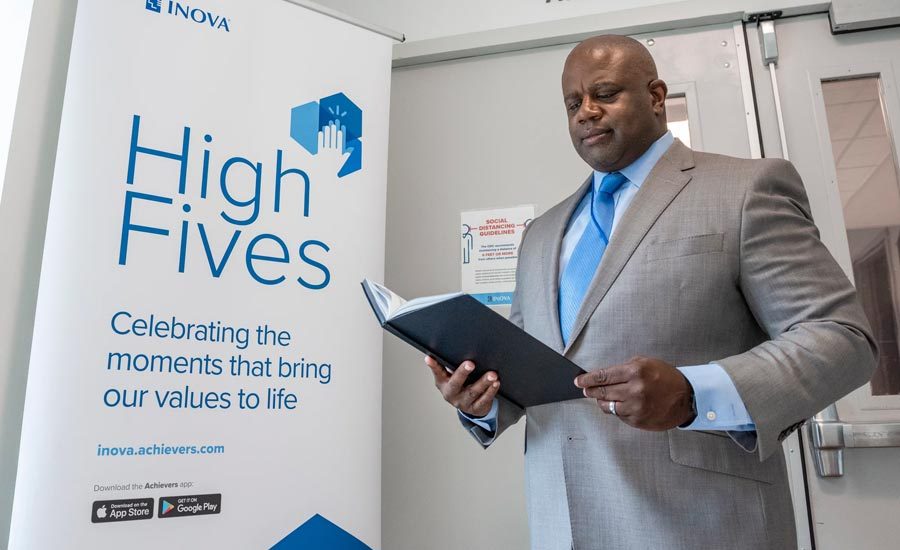Inova Health System is Northern Virginia’s leading nonprofit healthcare provider. The organization maintains five hospitals throughout the state for a total of close to 2,000 beds. Fairfax Medical Campus, Inova’s flagship location, is the only Level 1 trauma center in the area and features a Children’s Hospital as well as a Level 4 neonatal intensive care unit. The healthcare organization supports the region with three locked behavioral units as well.
Inova’s mission is to provide world-class healthcare to every member of the communities it serves — no small feat for such a large operation with 40,000 team members (18,000 on staff and the rest contracted) and more than 2 million patients and visitors a year.
The Occupational Safety and Health Administration reports that workers in the medical field encounter more nonfatal incidents of workplace violence than workers in any other profession. In addition, statistics show that most incidents come from patients or family members who have issues with substance or drug abuse and mental illness. Like all healthcare providers, Inova must contend with the ever-present risk of workplace violence and escalated incidents against nurses, security personnel, clinicians, and others.
For these reasons, Inova began a Behavioral Health Officer program in 2015 with the goal of creating a specialized group of security personnel to reduce workplace violence incidents in its Level 1 trauma center and behavioral health units, while continuing to provide the best possible care to its patients.
Together with Inova’s security contracting partner Allied Universal, they collectively realized the need for additional training and resources for security officers working in behavioral health settings and felt that specially trained officers could more effectively deal with that particular patient population. “We needed a higher level acuity skillset for non-escalation and de-escalation, as well as defensive tactics and the ability to employ critical holding skills,” says Rodney Miller, Assistant Vice President, System Security Services and Emergency Management for Inova Health System.
Thomas Parsons, the Inova Security System Director for Allied Universal, who focuses on the day-to-day security operations at the care sites and works closely with Miller, says that the training program incorporates mental health first aid and more intense de-escalation and non-escalation training.
When the program first launched several years ago, Lisa Terry, Allied Universal’s VP of Healthcare, says that all the officers were internally promoted. “They all were very experienced and received some very intense and highly specialized training,” she recalls.
Part of Inova’s approach to reducing workplace violence incidents and incorporating Behavioral Health Officers into the initiative was to design a collaborative training program that involved nurses and clinicians as well as the security officers. Not only has Inova experienced a significant reduction in workplace violence incidents, but clinicians and security staff have reported an increase in relationship and partnership building.
“The program has been so successful that we have expanded, and continue to expand, the specialized skillset throughout the health system. This is because we have seen the value in having officers that are experts in the early recognition and identification of potential incidents and individuals of concern and early intervention, which de-escalates events before they happen,” Miller says.
The expansion of the program is important, Miller says, because overall, workplace violence incidents have been on the rise over the past few years in areas beyond behavioral health, including emergency departments and other clinical settings, and which have only been exacerbated by the COVID-19 pandemic.
“From my perspective, we are pulling together a good team and making it even better,” Parsons says. “If you can have those policies and procedures in place every single time, it makes for a more predictable, efficient outcome that focuses on caring for the patients and protecting the team members as well.”
The Behavioral Health Officer program has evolved from a 24-hour classroom training program to a 32-hour training course, which includes intense role-playing scenarios where each officer is put into all roles, including patient, responding officer, observing officer and clinician, to develop understanding and empathy for all sides of an interaction.
“The officers bring a level of confidence to their role, and they truly feel a part of the care team. They are engaged, and they really have that ability to communicate effectively in any situation,” Miller explains.
Since its beginning days, the specialized security officer program continues to prove its value to the organization. Currently, out of more than 400 security officers working at Inova, about 120 are Behavioral Health Officer certified, and, Miller says, the organization plans to continue the initiative. “Feedback from staff and patients have proven the value of the program,” he says.
He adds that the partnership between Inova and Allied Universal has really standardized many of the day-to-day security operations and ultimately made the care site safer. “With all we have done in the past few years, we are looked upon differently within the region as leaders and innovators. We are building a safer and more secure climate, and we are joined at the hip to make that happen,” Miller says.





